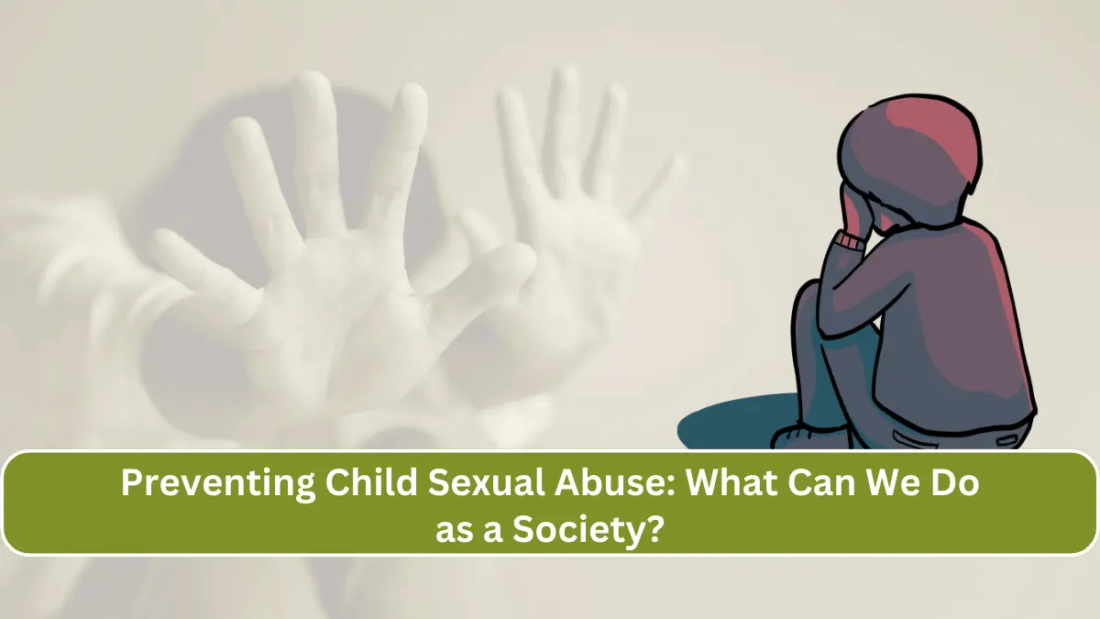When a person purposely causes physical, verbal, psychological, harm to a child with sexual intention then it is called as child sexual abuse. In the recent past the cases of child sexual abuse has been increasing rapidly. There is a need to immediately curb this serious problem. Therefore, the Protection of Children from Sexual Offences (POCSO) Act, was enacted, the aim of the legislation was to deter and punish the perpetrators of child sexual abuse by imposing harsh punishments. While there is this statute in place, it is also the legal and moral duty of every adult living in the society to protect the most vulnerable population, i.e., the children. In this article we will understand and explore the crucial actions that society should undertake in the event that they come across incidents of csa.
Definition of “Child Sexual Abuse” under POCSO Act
The POCSO Act provides a clear and comprehensive definition of what constitutes CSA. There is various definition in the statute, those include all types of sexual offenses committed against minors. As per the Act, any kind of sexual exploitation and sexual abuse of a child is a heinous crime, and it is dealt with effectively. The Act defines and penalizes all kind of sexual abuse be it penetration, non-penetrative acts, and using a child for pornographic purposes. These definitions are in consonance with the United Nations’s conventions for children and their rights. The Act also aligns with the UN mission that emphasizes the need of collective global strategy to safeguard children from any form of sexual abuse.
Data regarding Child Sexual Abuse in India
National Crime Records Bureau (NCRB) data shows that child sexual abuse occurs in India at a concerning high rate. As per NCRB, in 2022 there were 1,49,404 cases of crime against children all across the nation. The figures are alarming and it requires concerted effort from the society to safeguard young boys and girls.
What Can We Do If We Get to Know about CSA is Being Committed?
Mandatory Reporting Provision under the POCSO Act
Mandatory reporting is an important requirement under the Act. Every citizen across the nation has a a duty to notify the relevant authorities as soon as they get any information, or become aware, or have reason to suspect that a child is the victim of sexual abuse. This is also applicable to everyone in a position of trust or authority, including parents, educators, and medical professionals.
Will you face legal consequences for failing to Report Child Sexual Abuse?
Yes, all individuals are required by Section 19 of the POCSO Act to report sexual offenses against minors. According to Section 21 of the Act, failing to report may result in a fine, a six-month jail sentence, or both.
It is a crime to fail to report such incidents if one is aware of it. This provision is essential to ensure that bystanders are actively involved in protecting children and preventing further harm.
Emergency Helpline Number to Contact
Notifying the authority and seeking immediate assistance is essential when a child is in danger. Reports of child abuse can be made by calling at 1098, which is a toll-free helpline number. This hotline immediately links police officer, or other appropriate authorities and initiates a prompt response to protect the child in any kind of danger.
Steps for Reporting Child Sexual Abuse Offenses
1. Call or visit the local police or child protection services immediately.
2. Constantly assure the minor victim about confidentiality and also persuade them to speak up
3. Make sure to give appropriate authorities any pertinent data or proof that might help with the investigation.
4. Help the victim and their family by engaging a mental health expert or counsellor.
5. Provide necessary assistance to ensure a thorough and unbiased investigation.
Conclusion
Hence, it is the collective duty of all members of the society to prevent child sexual abuse. The POCSO Act is a strong legislation, but society’s involvement is vital for it to work efficiently. By being cognizant of the provisions of the Act, increasing awareness, and swiftly reporting incidents, we can help ensure that our children have a safer future. There is a need to acknowledge that every individual contributes significantly towards establishing a setting free from fear and harm, where children can develop and flourish.
-By Adv. Deeksha Rai
 Cart is empty
Cart is empty 

